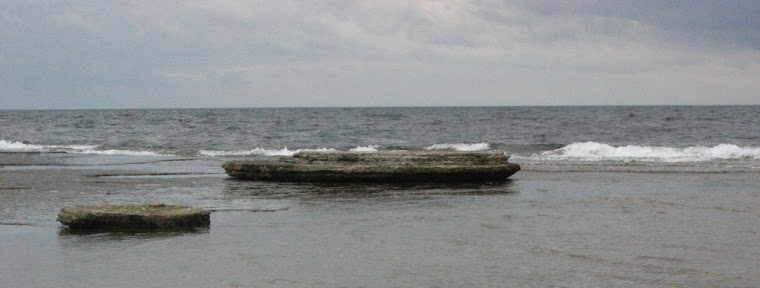The biggest challenges seem to be financial, of course, and I'm surprised that the theoretical plan would be to modify the Casper Events Center (installing ice and a Jumbotron, etc.), but it has held the Wyoming Cavalry indoor football, the CNFR, many state sports tournaments--it would certainly hold a fairly impressive crowd. It's also got locker room facilities, where glamorous things happen, like Casper College faculty members holding their annual "can anyone actually arrange their academic hood the correct way?" contest for commencement. (Pro tip: I don't think there is a correct way. I think the academic hood is just a cruel joke played on folks in academe in perpetuity. It's slightly below "good luck ever simply reading a book again" in sinisterness.)
I'm not just grasping at straws here in the absence of the NHL with my incredibly premature enthusiasm. I'm not not in panicked desperation for my Penguins, but I am applying copious amounts of AHL and KHL hockey to my chafed soul. It's something. I have emergency hockey treatments already scheduled over winter break (WBS Penguins vs. Hershey Bears, home and away, back to back days, oh yes).
But now that I've had a good taste of real minor league sports, living here in Casper and getting kind of attached to the awkward growing period of things like Rookie ball and then the Mountain Collegiate Baseball League (not technically professional minor leagues, but still a developmental league), I'm more than a little in love. I've never been to a CHL game, nor even an ECHL game (because I've spent most of my life in the East) because I've always lived closer to AHL clubs. In this world of hypothetical wishing, I don't know what to expect. I have to admit I filter these things by baseball terminology--it seems the equivalent of AA baseball. I don't know what that looks like in hockey. I can't imagine what it will look like in Casper, with a team that, according to the article, will likely be a transplant from Texas. (I say good. I say, Let us rescue you. There is winter here. This is a place friendly to ice.) One of the teams in that league currently in Texas is unaffiliated, and my completely uneducated gut instinct says that would be the team that moves. The Allen Americans are a Dallas Stars affiliate, but the Fort Worth Brahmas are unattached (unattached officially, it seems, but there are a number of current roster players that have come up through the Sabres system, including Riley Boychuk and Shawn Szydlowski).
Wyoming is all about cattle. Come to us, Brahmas. (Or, if I am wrong, I'm cool with the Allen Americans. People wave flags here really well.)
(Also, Mario, maybe the Penguins would like a CHL affiliate, since we're sharing Wheeling with the Canadiens?)
Hockey-related talk this fall has been an exercise in not getting my hopes up. As the linked article above explains, it's far from a done deal, too. Details are incredibly sketchy, vague, fraught. What that should mean is that it's easy to push off to the side for a while. I'll learn the decision when everyone else does (and if it's going to happen, the decision will come soon, it seems, unlike in the actual NHL where nothing is happening soon).
But all this has done is give me framework in which my imagination is already hiring a Zamboni driver. I'm already watching next year's draft, watching to see who might end up here. I don't need much on which to build wild flights of fancy, particularly not with hockey (particularly not with anything--don't let me fool you into thinking I have only a few categories of imaginative excess).
I'm hanging my hat and my heart on this.
Forth Worth and Allen, two of the possible hypothetical future Casper teams, are in a shootout right now, actually. 3-3 as of 9:20, MST, on 10/26. Allen wins, 4-3, on a goal by D-man Brett Skinner, a 2002 draft pick by the Canucks. He's got a bit of a journeyman's career, having started as a pro in 2005 and, after a bit of shuttling about that did include some games with the Islanders, having played for Amur Khabarovsk in 2010-2011.
Now that I'm waist-deep in trying to wade the KHL waters (complicated most by time zones, actually, because it's hard to follow games when my students are shuffling yawning into their first class of the day), and I now think I get the enormity (and isolation and what must be a constant feeling of jetlag) of playing in Khabarovsk, I want that guy in my city, playing hockey.
That's not even likely. Skinner's on a one-year deal with Allen, and if this season goes well for him, his goal is not going to be staying in the CHL. That isn't how the system works. The system works by moving up, moving on, and any (remember: hypothetical still, Holly) hockey that would take place in Casper wouldn't happen until 2013.
So the right thing to do is to say, no, Brett Skinner, I don't want to see you here next year. Based on exactly six minutes of watching a text box update with the successes and failures of the shootout, I want you to have a good season. Brett Skinner, defenseman with a solid shot, I want you somewhere better next season. And then I want to watch the player who takes your place, and hope I don't see him the year after that, either.
